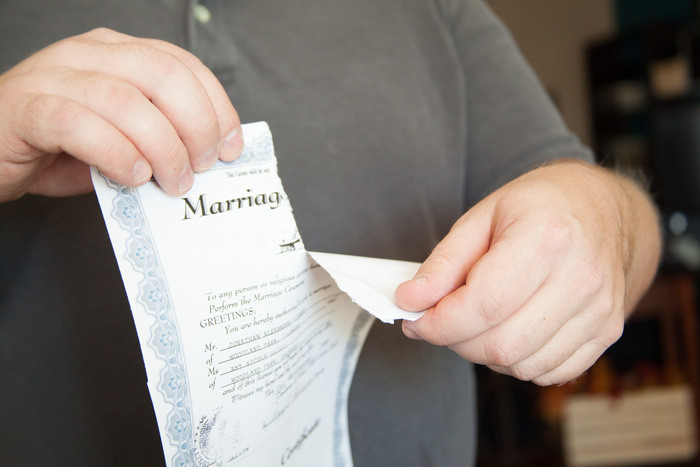
by Karis Jones
Parental Responsibility is defined in section 3(1) of the Children Act 1989 as ‘all the rights, duties, powers, responsibilities and authority which by law a parent of a child has in relation to the child and his property’. Therefore if you have Parental Responsibility you are recognised as having the legal powers to make appropriate decisions in relation to the upbringing and wellbeing of your child. However, others, besides parents, can have parental responsibility for a child; for example, a local authority for children in its care, a child’s guardian, a child’s stepfather and perhaps a child’s grandparents or other relatives will be able acquire parental responsibility in certain circumstances.
What Parental Responsibility means to you
As mentioned above Parental Responsibility is defined within the Children Act 1989. For example, Parental Responsibility will give you a right to contact your child’s doctor or discuss medical treatments, it will also allow you to play a part in your child’s education and have a say into which school your child attends.
A mother automatically acquires Parental Responsibility for her child, as does a married father irrespective of whether the marriage to the mother occurred before or after the birth of the child. However the law in respect of Parental Responsibility changed on the 1st December 2003. More...
The online divorce packages being offered by the Howells family law team have proven so popular that local and national newspapers have picked up on them and featured Howells Solicitors over the weekend.
The Wales on Sunday ran with this article:

Read the full story here.
The Sun also mentioned us:

As you can probably imagine, what was already a popular new service has now received many more enquiries as a result of this exposure.
by Tristan Lewis
We have launched three online divorce packages to provide alternative, affordable legal solutions.
The online packages are thought to be a first of their kind to be developed and introduced by a Welsh law firm. Drafted and prepared by Hannah Magee, an associate solicitor specialising in Family Law and using bespoke software, the new services will enable cases to be processed quickly, efficiently and most importantly without compromising the quality of work.
The entry level package costs just £35 + VAT and is applicable for uncontested, simple divorces where both parties agree to the divorce and there are no children or financial issues. The second package also includes the drafting of a divorce petition by Howells Solicitors and can include a Statement of Arrangements for children. Finally the third package, ‘Managed Divorce’ provides the client with a fixed fee fully managed divorce including representation from Howells Solicitors throughout the divorce process.
The family law market that is set to change quite dramatically this year. At the beginning of April, legal aid will no longer be available for most divorce, financial and private law cases. Unless individuals can afford to pay privately they may have to represent themselves in person before the family law court.
Approximately 250,000 people a year in Wales and England receive family advice and representation using Legal Aid. Some sources predict that this will drop to as few as 40,000 after the cuts to this funding in April.
Richard Scott, partner and senior solicitor in our Family Law team said, “It is a well known fact that more and more people are using online resources to source professional services that used to be only available on the ‘high street’. In the legal industry, 2012 saw the arrival of Alternative Business Structure (ABS) and more white label legal services being offered by large organisations and of course more online providers. Traditional legal practices need to modernise and adapt their services to compete.”
He continued, “We recognised the opportunity to couple the skills and experience of our large matrimonial team with the software we have developed to provide an online service that will be delivered by qualified solicitors. This will differentiate us from the majority of our competitors in the online market and also enable us to provide cost effective divorce services for those that might previously have relied on Legal Aid.”
The online packages are already available via our website here.
by Hannah Magee

In part 2 of our complete guide to divorce we look at the various stages involved in the divorce procedure (View part 1 here).
So, first things first...
Where Should You File Your Divorce Application?
Divorce applications can be filed in any divorce county court or in the Principal Registry in London. The nearest court to you can be easily located using the following website: http://www.justice.gov.uk/about/hmcts/
Payment can be made by debit or credit card, cash, postal order or cheque, which should be made payable to ‘HM Courts & Tribunals Service’. Depending on circumstances, certain individuals are eligible for a fee remission in full or in part. To see if this applies to you, visit the court service website and refer to booklet EX160A, entitled: Court Fees – Do I have to pay them? More...

A divorce is a difficult enough situation, trying to provide sufficient financial resources to support two homes when previously there was one, without matters being made worse by both parties having to contend with the added expense of solicitor’s fee’s. Here is our step-by-step guide to a divorce, helping you to understand proceedings and providing potential clients with the information they need to conduct their own online divorce and saving them a great deal of money along the way.
What Are Grounds for Divorce?
The only ground for a divorce is the irretrievable breaking down of a marriage. In this situation, the party bringing the divorce proceedings is known as the ‘petitioner’, while their spouse is called the ‘respondent’. To show there has been an irretrievable breakdown in the relationship, the petitioner must be able to prove one of the following five facts: More...
